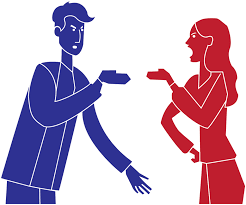Politics have been at an all-time high all over the country. It is shown in history how serious people get when it comes to presidential elections, world wars, or other conflict. Because of this, independent school districts have rules on what teachers can and cannot say within the classrooms. These rules, found in the MISD Board Policy Manual, state that no one, including employees, have an unlimited constitutional right to take advantage of a school facility or its immediate surroundings for any kind of expressive purpose. A public employee who speaks in the course of doing their official duties is not, for First Amendment purposes, speaking as a citizen, and the words are not protected from employer discipline under the Constitution.
However, this does bring conflict to some. According to Education Week, students not being exposed to politics “does not prepare students for civic life.” The Education Week is a website that creates articles on politic views, career advice, and much more. This article believes that politics should be spoken about in classrooms. But it’s known that opinions differ. Ryan White, psychology and AP history teacher, believes it’s his job to explain events and how they happened, so his students can form their own opinions on the matter.
“I think if a student asks their teachers viewpoints on things the teacher should be able to express what their personal view is. I think that’s part of freedom of speech. I don’t think teachers should push their views onto students because again, our job is to help you learn how to think,” said White.
Expressing the same views as Ryan White, Daniel Ray, Algebra l and ll teacher, states that political conversations would make more sense being discussed within classrooms that speak about politics or history. Ray states that the political views should be talked about in a more safe space such as history and government classes. He also goes on to say that if political views are expressed within the classroom, a math class wouldn’t be the best place due to the context of that classroom.
“I think it’s good to explain it in a good and safe atmosphere. But if it’s brought up in a math classroom, I think it can devolve into arguing and people can maybe get their feelings hurt, but if it’s in a classroom where both sides are expressed, I think that’s a proper time to talk about political views without any sort of bias,” said Ray.
Students have a different outlook on the matter of political expression in the classroom. Tracie Oenga, junior, states that if political views were expressed in the classroom, not all students would handle teachers and their political expression well due to many people’s passion for politics. Because many people get so worked up on politics, Oenga believes that there should be limits on what can and can’t be said.
“If a teacher had a different opinion than me, it’s okay. You can’t always expect people to agree with what you want,” said Oenga.
Other students, such as Reese Talton also expressed a different point of view on the matter because Talton is in TCC college classes, so she has professors instead of high school teachers. Because of this, she expresses that her opinion varies on the matter.
“I think college professors should be able to be more political in the classrooms, especially since we’re taking adult classes. But our high school teachers, I don’t think should be political,”said Talton.
Political views being expressed within the classrooms will always be controversial due to how serious politics gets. As it’s seen, people’s opinion on the matter vary in many different ways. Politics will probably always be difficult to talk about.

